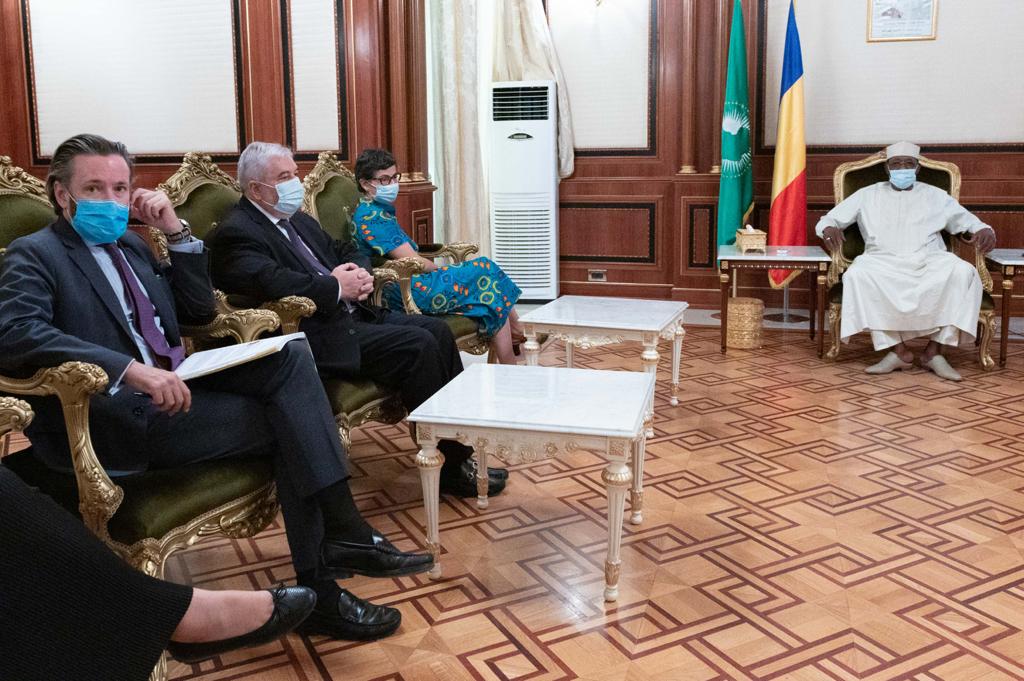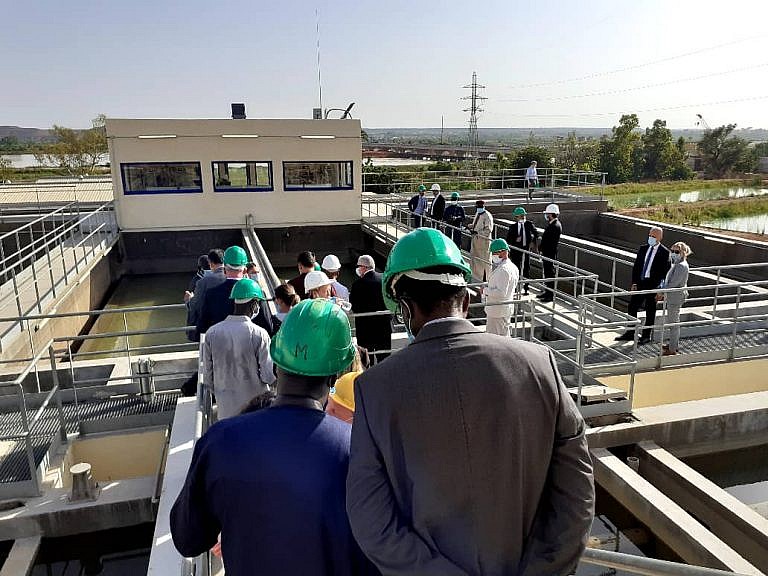Visit of the Spanish Minister of Foreign Affairs to Niger and Chad
The Minister of Foreign Affairs, European Union and Cooperation, Mrs. Arancha González Laya, just concluded her first visit to the Sahel on October 8 and 9. She traveled to Niger and Chad as Chairwoman of the General Assembly of the Sahel Alliance, a position to which she was appointed last June and whose mandate representing Spain lasts one year.

The three-day visit gave Ms. González Laya the opportunity to see first-hand why the Sahel is one of the priority regions for Spain, as it mobilizes significant resources and efforts to support countries in their peace, development and stability processes or in the fight against illegal immigration. The Minister was also able to appreciate the importance of the Sahel Alliance as a development stakeholder in responding to the security, economic and humanitarian challenges in the region. During her meetings with political and institutional authorities, as well as with the security and development cooperation heads, Ms. González Laya witnessed the magnitude of the security, economic and humanitarian crisis in the region which, because of its proximity to Spain, is a strategic priority for the latter.
As part of the packed agenda of these two days, the Minister made a symbolic delivery of humanitarian aid to Niger, which preceded the dispatching that very day of 15 tons of European humanitarian equipment from Spain, under ECHO, to meet the needs of Niger’s population affected by the floods that have occurred in the country. The Minister also toured Spanish cooperation projects and various water and sanitation projects of the Sahel Alliance together with other members of the cooperation platform. In Niger, she visited the urban water and sanitation project in the city of Niamey. This initiative supported by the European Union, France, Belgium and the Netherlands aims to strengthen drinking water production and distribution capacity to meet growing demand and improve sanitation and hygiene conditions in the city’s public hospitals. In Chad, the Spanish Minister visited the “Water & Sanitation Project in N’Djaména” (PEAN), cofinanced by AFD and the European Union, in the northern and eastern districts of the capital. The project seeks to improve access to basic urban services such as drinking water and decent toilets for the population and to reduce flooding in the area by building drainage infrastructure. While attending hygiene awareness activities carried out by young volunteers, Minister Gonzales Laya strongly encouraged them to ” carry on with awareness-raising efforts and other actions in fields such as education and gender equity “. The Minister also toured a school where children showed her the latrines that were built under the PEAN project. The Minister shared the following words with the school’s stakeholders: “We support your efforts to ensure that children’s education continues to improve”.

The Minister explained to her interlocutors, who were senior level officials in both Niger and Chad, that the objectives that Spain has set for itself during its presidency of the Sahel Alliance are: to raise the profile and visibility of the Sahel Alliance; to pursue a seamless and trust-based dialogue with the G5 Sahel countries; to structure the anchoring of the Sahel Alliance in the Coalition for the Sahel; and to increase the number of members and observers. At the close of the visit, the Spanish Minister of Foreign Affairs, European Union and Cooperation made a Declaration on Mali on behalf of the Sahel Alliance. In this declaration, the Sahel Alliance welcomes Mali’s commitment to a civil transition that shall lead to the holding of credible elections and the restoration of constitutional order in 18 months. We are pleased that the negotiations on the contours of this transition were concluded in a peaceful and constructive manner and met with the accession of the Economic Community of West African States (ECOWAS). This constitutes a positive message for the development partners and for the future of our bilateral and multilateral cooperation.

